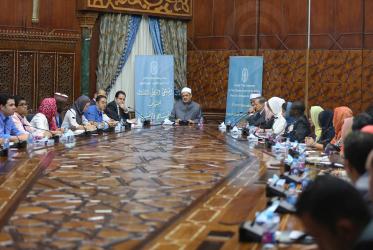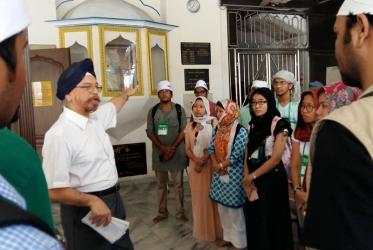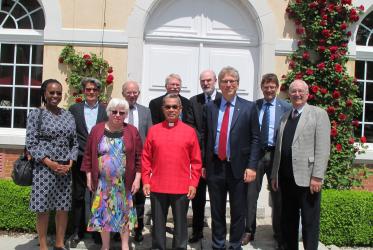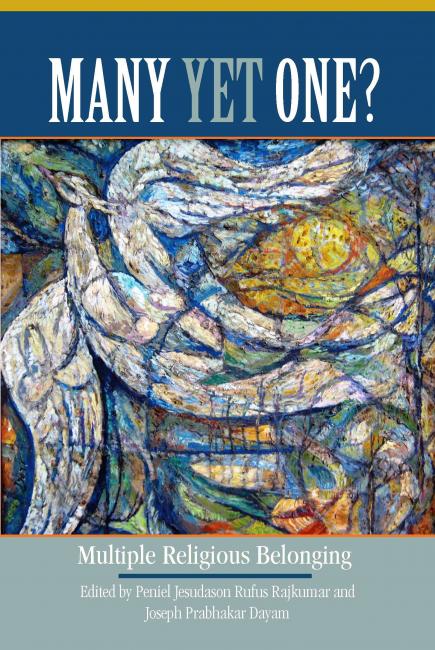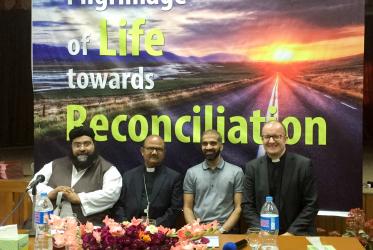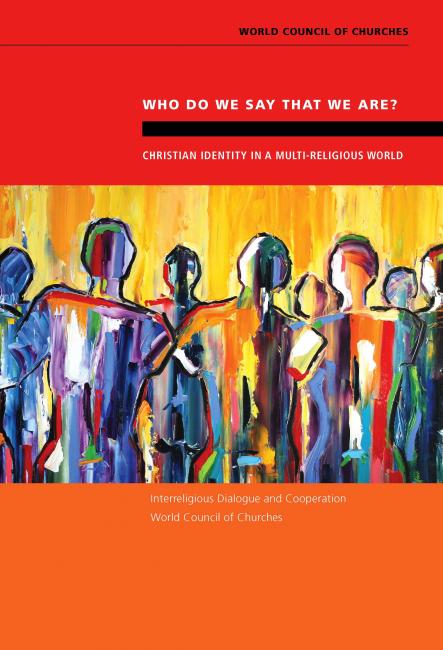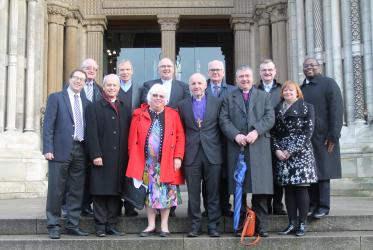Displaying 101 - 120 of 162
Bossey students celebrate graduation
23 August 2016
Hielke Wolters: Apostle of mission strategies
01 August 2016
Catholic-WCC group pursues new mandate
13 April 2016
Church of Pakistan hosts Muslims, Christians
23 March 2016
Religion: Friend or Foe of the Common Good?
16 February 2016
Annual meeting on interreligious dialogue
08 February 2016
Symposium focuses on religion, violence, extremism
04 February 2016
WCC delegation visits north Ireland and border barriers
02 December 2015
